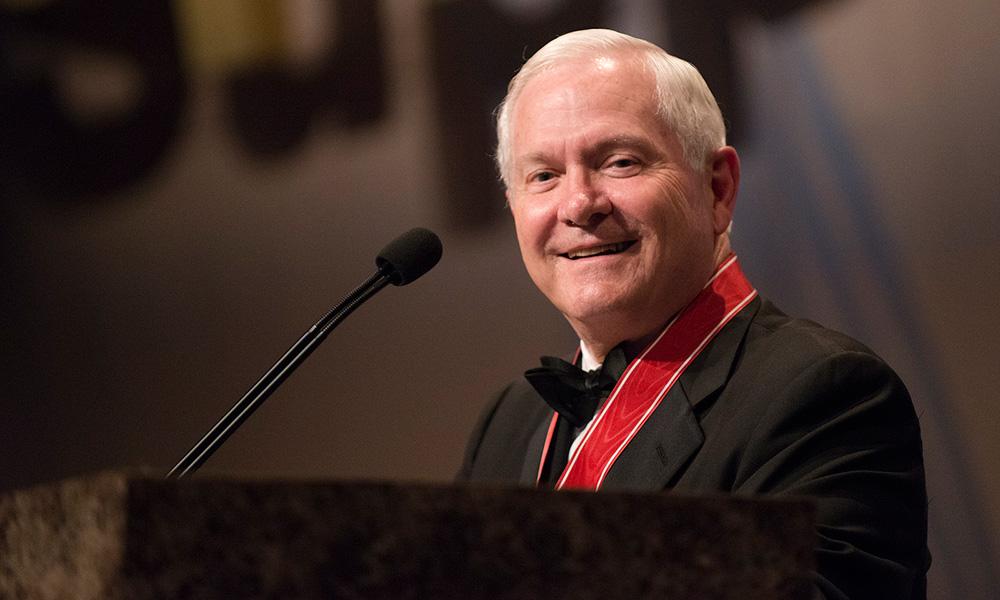
The Civil Servant at the Top
The Boy Scouts of America recently named former Defense Secretary Robert Gates as its new president. How can a former public servant help associations be prepared?
Last week the Boy Scouts of America announced that it had selected former Secretary of Defense Robert Gates to be its next president. The basic outline of that story should have a familiar ring: A person who was once established in a powerful role in the military or government decides to shift into nonprofit leadership. There have been numerous examples of this in the past five years. Think of former Connecticut senator Chris Dodd, now head of the Motion Picture Association of America; general Wesley Clark, co-chair of Growth Energy, an ethanol industry trade group; or former South Carolina senator Jim DeMint, now head of the Heritage Foundation.
Time was, pundits and reporters attached a particular word to moves like this: sinecure. An established public-sector leader, staring down a shift in military strategy, a tough upcoming primary challenge, or just the prospect of a retirement that didn’t sit right with workaholic instincts, opts for steadier waters and takes a gig with a trade group.
More scrutiny of nonprofits, from the IRS to social media, has demanded more resolute leadership.
But that’s not what’s going on here.
For one thing, the waters aren’t so steady. Gates takes the helm of the BSA at a time of friction within the organization over its ban of gay scouts (to be rescinded in January) and gay scout leaders (which remains in place). The conflict has led to the rise of a rival scouting organization and plenty of speculation about BSA’s future direction. Dodd joined MPAA as Hollywood studios are enmeshed in battles over piracy and rapidly proliferating modes of entertainment distribution, particularly online. DeMint took over the conservative Heritage Foundation in the midst of a deep rift within the Republican Party over the definition and goals of conservatism.
Some sinecure.
I don’t want to overstate things. I don’t question that associations historically have had advantages over government and even the corporate sector when it comes to pay, perks, and workload.
But the role of associations, their own stability, and their need to project strong leadership to the public has changed over the past decade. More scrutiny of nonprofits, from the IRS to social media, has demanded more resolute leadership. So has a recession that has battered even the most robust industries.
Ten years ago, the hirings of the likes of Clark, Dodd, and DeMint would probably serve as straightforward case studies in charismatic leadership—people who have a certain celebrity wattage that can attract positive attention (and perhaps revenue) for the organization’s mission. But for increasingly global organizations, charismatic leadership, in itself, isn’t as impressive or meaningful as it used to be. What’s evident in the hirings of these high-profile former public servants is an effort to find people with some battle scars, literal and metaphorical, because they’ll be managing the organizations in times of conflict.
And don’t discount the notion that there’s value in hiring for the kind of wonkiness that can only come from government experience. Writing about former Minnesota governor Tim Pawlenty’s new role as CEO of the Financial Services Roundtable, a banking industry trade association, BloombergBusinessweek noted the virtues of his particular skill set: “Once a statute like Dodd-Frank is on the books, lobbying modes shift. Instead of schmooze sessions on Capitol Hill lubricated by campaign fundraisers, influence peddling takes the form of densely written commentary from the affected business interests and grueling in-person visits to rule-writing agencies.”
Is it a smart move for every organization? For the large lobbying organizations, having somebody in charge with a well-stocked Rolodex and a black belt in bureaucratese certainly helps. But in these cases—and here’s the appeal for many organizations, large and small—the organizations are also hiring for steadiness and firm purpose in the face of criticism. Dodd and DeMint have taken plenty of lumps for standing pat on positions that will alienate large chunks of their organizations’ constituencies; Gates will, too. And the organizations that hired them are trusting that it’s precisely this capacity to take that criticism that will serve their organizations in the long run.
Former Defense Secretary Robert Gates, who recently was chosen as the Boy Scouts' new president. (photo by Chairman of the Joint Chiefs of Staff/Flickr)






Comments